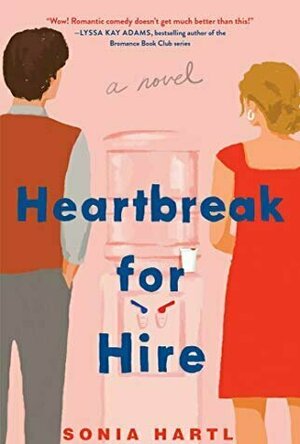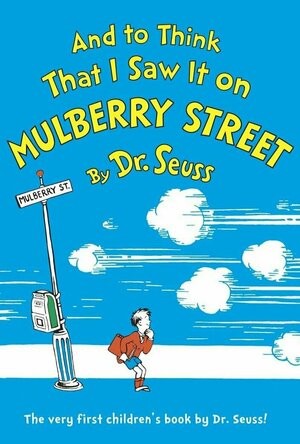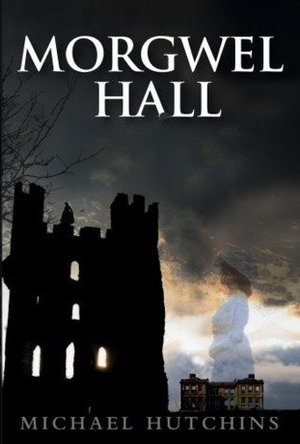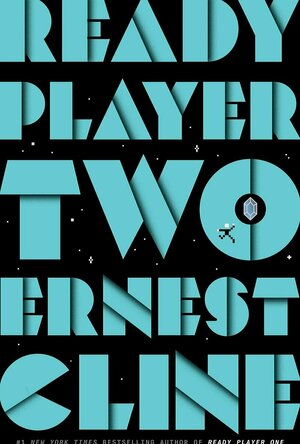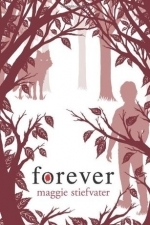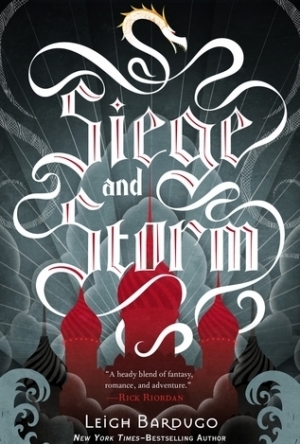Search
Search results
Kristy H (1252 KP) rated Heartbreak for Hire in Books
Aug 19, 2021
A wreck of a romance
Brinkley Saunders tells everyone she works as an administrative assistant. But she really works at
Heartbreak for Hire, an undercover operation that specializes in a variety of revenge schemes for jilted lovers, annoyed coworkers, and more. She dropped out of grad school in the aftermath of a disastrous relationship--much to the despair of her mother--but the job helps Brinkley save for her dream of opening her own art gallery. However, when her boss Margo announces she's hiring male Heartbreakers for the first time, Brinkley starts questioning her purpose, especially when one of the new hires is a target she was paid to take down. Markus Cavanaugh is an adjunct anthropology professor at University of Chicago. He doesn't seem like the backstabbing academic she was told to go after... and as she gets to know Markus more and continues to question her role as a Heartbreaker, Brinkley realizes a lot of things aren't what they seem.
"I had my career, my cat, control. The Three C's of avoiding that hopeless cycle of loving someone who didn't love me back."
I feel awful, but this book just did not work for me at all. I almost didn't finish it, but I really try to complete all my ARCs. Ironically I hated most of it except the end, which was actually pretty good. But most of this one had me cringing. Brinkley's job is terrible and makes no sense--I couldn't even see how Heartbreakers and the division of "Egos, Players, Cheaters, and Grifters" would even possibly translate to the real world. Her boss is absolutely awful.
"If we trained men to break women's hearts, what did that say about our mission? What did that say about us?"
The book is filled with ridiculous contrived fights and plot-lines, and I didn't buy the relationship between her and Markus at all. They like each other, hate each other, rinse and repeat, with a bunch of silly "twists" thrown in over and over to keep them apart. Do something and stop whining (this applies equally to them both). It was just boring and stupid, and I couldn't handle all the bad decisions. If there's going to be conflict, I want it to be realistic, and if there's going to be romance, I want to buy into the couple and feel a genuine affection toward them. But with everyone being so hateful to each other, an entire profession created toward tearing people down, and a bunch of random contrived obstacles thrown up to keep Markus and Brinkley apart... I just couldn't handle it.
A lot of other people enjoyed this one far more than me, so hopefully you will too.
I received a copy of this book from Gallery Books and Netgalley in return for an unbiased review.
Heartbreak for Hire, an undercover operation that specializes in a variety of revenge schemes for jilted lovers, annoyed coworkers, and more. She dropped out of grad school in the aftermath of a disastrous relationship--much to the despair of her mother--but the job helps Brinkley save for her dream of opening her own art gallery. However, when her boss Margo announces she's hiring male Heartbreakers for the first time, Brinkley starts questioning her purpose, especially when one of the new hires is a target she was paid to take down. Markus Cavanaugh is an adjunct anthropology professor at University of Chicago. He doesn't seem like the backstabbing academic she was told to go after... and as she gets to know Markus more and continues to question her role as a Heartbreaker, Brinkley realizes a lot of things aren't what they seem.
"I had my career, my cat, control. The Three C's of avoiding that hopeless cycle of loving someone who didn't love me back."
I feel awful, but this book just did not work for me at all. I almost didn't finish it, but I really try to complete all my ARCs. Ironically I hated most of it except the end, which was actually pretty good. But most of this one had me cringing. Brinkley's job is terrible and makes no sense--I couldn't even see how Heartbreakers and the division of "Egos, Players, Cheaters, and Grifters" would even possibly translate to the real world. Her boss is absolutely awful.
"If we trained men to break women's hearts, what did that say about our mission? What did that say about us?"
The book is filled with ridiculous contrived fights and plot-lines, and I didn't buy the relationship between her and Markus at all. They like each other, hate each other, rinse and repeat, with a bunch of silly "twists" thrown in over and over to keep them apart. Do something and stop whining (this applies equally to them both). It was just boring and stupid, and I couldn't handle all the bad decisions. If there's going to be conflict, I want it to be realistic, and if there's going to be romance, I want to buy into the couple and feel a genuine affection toward them. But with everyone being so hateful to each other, an entire profession created toward tearing people down, and a bunch of random contrived obstacles thrown up to keep Markus and Brinkley apart... I just couldn't handle it.
A lot of other people enjoyed this one far more than me, so hopefully you will too.
I received a copy of this book from Gallery Books and Netgalley in return for an unbiased review.
Daniel Boyd (1066 KP) rated Metal Gear Solid V: The Phantom Pain in Video Games
Nov 2, 2017 (Updated Nov 2, 2017)
Gameplay (1 more)
Graphics
Characters (1 more)
Twist ending
A Review By A Disappointed Long Time Fan
Before this game was released, I was certain that it was going to be my Game Of The Year for 2015, and in a lot of ways it is a worthy contender. As an open world stealth game, it is groundbreaking. The gameplay is some of the best I’ve ever seen, the controls feel tight, the underlying systems and features, (such as reflex mode and the buddy system,) are solid and the AI is responsive and fair. This is KojiPro’s first attempt at an open world game, and as far as first attempts go, this is ‘pretty good.’ The world is breathtaking as well, the graphics that the Fox engine can produce are stunning in every way, the world feels alive, with both enemies and wildlife, the textures, the particle systems, the gun models, every visual in this game has been created with an insane amount of attention to detail and all of it really pays off. I experienced little to no glitches while making my way through the single player campaign and the presentation overall is great. Motherbase is also awesome, you genuinely feel as if you are assembling an army and even though the Fulton is daft, it is a nice touch. And the amount of variety this game provides is vast, you can take 4 different buddies with you, each with unique skills, you can infiltrate in the morning or at night, you can choose your guns and customise them to suit, you can also customise your buddy’s gear, your helicopter and to a small extent Motherbase too, although that could have went deeper. Now, if that is all that you are looking for, then seriously, stop reading this review right now and go buy the game, you will love it and there is so much to do, I sank a good 75+ hours into this game and my overall completion rate is still only at 75%. If however, like me, you are looking for something more than just great gameplay, you will be left feeling as empty as I do. Like I keep reiterating, the gameplay is phenomenal, but that’s the problem, I have never played MGS for the gameplay. It wasn’t the gameplay that made me fall in love with the series growing up and if anything you would always suffer through the stiff gameplay in order to experience the deep and complex story and that was okay, because it would always be so worth it. This game throws all of that out of the window.
The way that this game is structured is awful. You play a few main missions in a row, the story is beginning to hook you, but then OCD kicks in and you realise that you have 4 or 5 side missions building up to be completed, so you go and do them, but then you come back to the main story and forget what was going on in the last mission, but who cares when you can Fulton a goat, right?
The writing in this game is possibly the laziest it’s ever been, one example of this is the ‘controversial’ character known as Quiet. This character has been masterly debated over a lot (see what I did there?) and thrown more gasoline on the fire that is the over-sexualisation of women in video games. My stance on it is somewhere in between, the reason for her lack of clothes and speech is silly, however she is running around Afghanistan and Africa, which are very hot countries, so really they could have put her in a bikini top and a pair of cargo pants and I doubt anyone would have batted an eyelid. Now, the Metal Gear series has always been known for its odd Japanese perviness, but when it is a main character that has been sexualised, it’s always been for a justified narrative reason, such as EVA in MGS3 walking about with the front of her jacket unzipped showing off her bikini clad chest, but the whole point of her mission in that game, was to seduce Snake, so it made sense within the context of the story, in this game the reason for Quiet’s over exposure is much lazier and feels tacked on as a cheap excuse.
The worst part about all of this is the fact that, this is it, Kojima’s definite last Metal Gear game, there is no going back to redeem anything, like in MGS2 when everyone hated it, but because 4 solved some of the problems that were created in 2 people are now okay with 2, that can’t happen with this game because Kojima and Konami are no more. Now I could write a whole other paper on Konami vs Kojima and my stance on it but this is the jist, Kojima was spending too much money and taking too much time with this game, Konami demanded he finish it so they can make their money and add their microtransaction’s etc Kojima told them where they can stick it and the partnership was dead. This has had an effect on the game, there is clearly content missing, Konami has confirmed that at least one mission was cut, where Snake would have went to Africa to have another battle with Eli and Sahalanthropus, which is the Metal Gear in this game, which is unacceptable really. Also, I assume there was a lot of other content that was cut that we weren’t told about. Sahalanthropus is another problem I have, how is it that this Metal Gear created in the 80’s is more advanced than REX, which was created in the early 2000’s. Also, when you fight Sahalanthropus, there is no one in the thing, it is an empty robot being controlled by Mantis, who floats beside the giant mech. That is actually a decent metaphor for the lack of villains in this game. Skull Face is hardly in the game and his eventual death, like every other significant event in this game, just kind of happens with no build up and packing little punch. The team of bosses in the original Metal Gear, headed up by Liquid and Ocelot, were probably the best team of villains in any game ever, since then the bosses have gone slowly downhill. The Sons of Big Boss were great, Dead Cell were pretty cool, The Cobras were okay, The Beauty & The Beast Corps were pretty lame and The Skulls in this game are emotionless zombies who don’t even have individual names and Skull Face is such a disappointing antagonist, he is hardly in the main game and then he shows up at the end, gives some silly speech that we have heard before in the trailers and then just dies, no boss fight or anything. Also, no customisable Metal Gear, which I feel like is a huge missed opportunity and no Sims like Motherbase customisation, interior or exterior.
David Hayter was missed in this game, Keifer was fine on the rare occasion he did speak, but the phantom Snake twist was the perfect opportunity to reintroduce Hayter’s voice and they didn’t take it. Also no Campbell or EVA, not even a reference. And it is never explained why the last time we see the real Big Boss, he is rescuing a child and a young girl and the next time we see him he has become modern day Hitler. Ultimately, this game just makes me sad, it is hard not to focus on the fallout from the Konima debacle, P.T/Silent Hills is no more, that promisingly terrifying demo we were teased with will amount to nothing and this game is all we will ever get again in terms of the Metal Gear saga. This is the end of an era, and it’s an end that doesn’t sit perfectly with me.
The way that this game is structured is awful. You play a few main missions in a row, the story is beginning to hook you, but then OCD kicks in and you realise that you have 4 or 5 side missions building up to be completed, so you go and do them, but then you come back to the main story and forget what was going on in the last mission, but who cares when you can Fulton a goat, right?
The writing in this game is possibly the laziest it’s ever been, one example of this is the ‘controversial’ character known as Quiet. This character has been masterly debated over a lot (see what I did there?) and thrown more gasoline on the fire that is the over-sexualisation of women in video games. My stance on it is somewhere in between, the reason for her lack of clothes and speech is silly, however she is running around Afghanistan and Africa, which are very hot countries, so really they could have put her in a bikini top and a pair of cargo pants and I doubt anyone would have batted an eyelid. Now, the Metal Gear series has always been known for its odd Japanese perviness, but when it is a main character that has been sexualised, it’s always been for a justified narrative reason, such as EVA in MGS3 walking about with the front of her jacket unzipped showing off her bikini clad chest, but the whole point of her mission in that game, was to seduce Snake, so it made sense within the context of the story, in this game the reason for Quiet’s over exposure is much lazier and feels tacked on as a cheap excuse.
The worst part about all of this is the fact that, this is it, Kojima’s definite last Metal Gear game, there is no going back to redeem anything, like in MGS2 when everyone hated it, but because 4 solved some of the problems that were created in 2 people are now okay with 2, that can’t happen with this game because Kojima and Konami are no more. Now I could write a whole other paper on Konami vs Kojima and my stance on it but this is the jist, Kojima was spending too much money and taking too much time with this game, Konami demanded he finish it so they can make their money and add their microtransaction’s etc Kojima told them where they can stick it and the partnership was dead. This has had an effect on the game, there is clearly content missing, Konami has confirmed that at least one mission was cut, where Snake would have went to Africa to have another battle with Eli and Sahalanthropus, which is the Metal Gear in this game, which is unacceptable really. Also, I assume there was a lot of other content that was cut that we weren’t told about. Sahalanthropus is another problem I have, how is it that this Metal Gear created in the 80’s is more advanced than REX, which was created in the early 2000’s. Also, when you fight Sahalanthropus, there is no one in the thing, it is an empty robot being controlled by Mantis, who floats beside the giant mech. That is actually a decent metaphor for the lack of villains in this game. Skull Face is hardly in the game and his eventual death, like every other significant event in this game, just kind of happens with no build up and packing little punch. The team of bosses in the original Metal Gear, headed up by Liquid and Ocelot, were probably the best team of villains in any game ever, since then the bosses have gone slowly downhill. The Sons of Big Boss were great, Dead Cell were pretty cool, The Cobras were okay, The Beauty & The Beast Corps were pretty lame and The Skulls in this game are emotionless zombies who don’t even have individual names and Skull Face is such a disappointing antagonist, he is hardly in the main game and then he shows up at the end, gives some silly speech that we have heard before in the trailers and then just dies, no boss fight or anything. Also, no customisable Metal Gear, which I feel like is a huge missed opportunity and no Sims like Motherbase customisation, interior or exterior.
David Hayter was missed in this game, Keifer was fine on the rare occasion he did speak, but the phantom Snake twist was the perfect opportunity to reintroduce Hayter’s voice and they didn’t take it. Also no Campbell or EVA, not even a reference. And it is never explained why the last time we see the real Big Boss, he is rescuing a child and a young girl and the next time we see him he has become modern day Hitler. Ultimately, this game just makes me sad, it is hard not to focus on the fallout from the Konima debacle, P.T/Silent Hills is no more, that promisingly terrifying demo we were teased with will amount to nothing and this game is all we will ever get again in terms of the Metal Gear saga. This is the end of an era, and it’s an end that doesn’t sit perfectly with me.
Mark @ Carstairs Considers (2480 KP) rated And to Think That I Saw It on Mulberry Street in Books
Sep 26, 2024 (Updated Sep 26, 2024)
That’s Quite an Imagination You’ve Got There
In this book, we meet Marco, a young boy whose father is always encouraging him to observe the world around him to see what he can see. However, his trip home from school on Mulberry Street is rather boring. All he sees is a horse pulling a broken-down wagon. But what if, instead, he said he saw a new cart…drawn by a zebra. No, that’s not special enough. Where will Marco’s wild story stop?
I didn’t read this book too much as a kid, but even as an adult, it is easy to fall into the classic Seuss rhythm and rhyme. It does get a little repetitive since he repeats Mulberry Street so often, but that’s the only real complaint. Marco’s imagination is so much fun, although I appreciated that he told the truth in the end. The illustrations are classic Seuss as well, and the caricatures of everyone are so much fun. Fans will also enjoy seeing that the elephant looks remarkably like Horton. If you can track this book down, you and your kids will enjoy it.
I didn’t read this book too much as a kid, but even as an adult, it is easy to fall into the classic Seuss rhythm and rhyme. It does get a little repetitive since he repeats Mulberry Street so often, but that’s the only real complaint. Marco’s imagination is so much fun, although I appreciated that he told the truth in the end. The illustrations are classic Seuss as well, and the caricatures of everyone are so much fun. Fans will also enjoy seeing that the elephant looks remarkably like Horton. If you can track this book down, you and your kids will enjoy it.
Heather Cranmer (2721 KP) rated Morgwel Hall in Books
Feb 20, 2019
Interesting plot (1 more)
Great setting
A bit too wordy sometimes (1 more)
Hard to get an idea of the age of main character
A Lovely Ghost Story
I love books about ghost stories, so when I got the chance to read Morgwel Hall by Michael Hutchins, I didn't think twice. The synopsis definitely piqued my interest. Luckily, I was not disappointed.
I really enjoyed the plot for Morgwel Hall. Captain Williamson sees a girl dancing on the battlements of the ruined castle he is about to purchase. He is instantly mesmerized by her. He learns her name is Anna and begins to fall in love with her. The only problem is she's a ghost. However, there's a bit more paranormal happenings going on at Morgwel Hall. Desperate to learn the history of the place, he seeks out two locals who tell him of the horrible history of Morgwel Hall and of Anna's demise. I wouldn't say the plot was scary. It was spooky and a bit creepy at times, but it wasn't overly scary which I didn't mind. It was still very interesting! I didn't really read any major plot twists, but that didn't take away from the story. All of my questions and wondering were answered by the end of the book even my questions about Williamson's cat and dog which was a nice touch. I wish there was more detail as to why Anna took a shining to Captain Williamson and what made her fall in love with him though. The world building was done very well as well. The story takes place almost completely in Cornwall not long after World War I. It was definitely believable.
The characters of Morgwel Hall were very well written and realistic. Captain Williamson is a great character although sometimes it was hard to tell if he was supposed to be an older man or a younger man. It would have been nice to know his actual age in the book because I struggled to picture him in my mind age wise. Other than that, everything about Williamson was great. It was interesting learning with Williamson about Morgwell Hall. Albert and Nancy were also fantastic characters. I really liked Nancy for some reason. I guess it was just how humble she was. Dougy was my absolute favorite though. He sounded like such a sweet dog!
The pacing in Morgwel Hall was set decently. There were a few times when the story got a bit too wordy and descriptive which would slow the pacing down a little, but for the most part, the pacing stayed strong, and I was desperate to learn more about Morgwel Hall and the history.
Trigger warnings for Morgwel Hall include alcoholism (Captain Williamson came across as being addicted to whiskey), minor profanities, death, suicide, and implied murder.
Overall, Morgwel Hall is a very interesting read. The plot is written very well, and the characters are interesting to read about. I would definitely recommend Morgwel Hall by Michael Hutchins to those aged 15+ who are fans of ghost stories but don't want to be too scared.
--
(A special thank you to the author for providing me with a paperback of Morgwel Hall in exchange for an honest and unbiased review.)
I really enjoyed the plot for Morgwel Hall. Captain Williamson sees a girl dancing on the battlements of the ruined castle he is about to purchase. He is instantly mesmerized by her. He learns her name is Anna and begins to fall in love with her. The only problem is she's a ghost. However, there's a bit more paranormal happenings going on at Morgwel Hall. Desperate to learn the history of the place, he seeks out two locals who tell him of the horrible history of Morgwel Hall and of Anna's demise. I wouldn't say the plot was scary. It was spooky and a bit creepy at times, but it wasn't overly scary which I didn't mind. It was still very interesting! I didn't really read any major plot twists, but that didn't take away from the story. All of my questions and wondering were answered by the end of the book even my questions about Williamson's cat and dog which was a nice touch. I wish there was more detail as to why Anna took a shining to Captain Williamson and what made her fall in love with him though. The world building was done very well as well. The story takes place almost completely in Cornwall not long after World War I. It was definitely believable.
The characters of Morgwel Hall were very well written and realistic. Captain Williamson is a great character although sometimes it was hard to tell if he was supposed to be an older man or a younger man. It would have been nice to know his actual age in the book because I struggled to picture him in my mind age wise. Other than that, everything about Williamson was great. It was interesting learning with Williamson about Morgwell Hall. Albert and Nancy were also fantastic characters. I really liked Nancy for some reason. I guess it was just how humble she was. Dougy was my absolute favorite though. He sounded like such a sweet dog!
The pacing in Morgwel Hall was set decently. There were a few times when the story got a bit too wordy and descriptive which would slow the pacing down a little, but for the most part, the pacing stayed strong, and I was desperate to learn more about Morgwel Hall and the history.
Trigger warnings for Morgwel Hall include alcoholism (Captain Williamson came across as being addicted to whiskey), minor profanities, death, suicide, and implied murder.
Overall, Morgwel Hall is a very interesting read. The plot is written very well, and the characters are interesting to read about. I would definitely recommend Morgwel Hall by Michael Hutchins to those aged 15+ who are fans of ghost stories but don't want to be too scared.
--
(A special thank you to the author for providing me with a paperback of Morgwel Hall in exchange for an honest and unbiased review.)

StarTracker Lite-Mobile SkyMap
Reference and Education
App
Hey, get outdoor with your friends and start star gazing! Let StarTracker guide you to explore the...
Sarah (7800 KP) rated Ready Player Two in Books
Jan 11, 2021
What happened?!
Until a couple of weeks ago, I hadn’t known this sequel even existed. My joy at finding out there was a sequel was scuppered a little after hearing some not very positive things about it, however I couldn’t not read this after absolutely loving Ready Player One. I was hoping the reviews I’d read were wrong... but unfortunately not.
Right from the start, something feels off about Ready Player Two. It feels a little too forced and the writing style seems rather stilted and basic. All of the pop culture references feel forced and don’t flow, and a lot feel like they’ve been shoehorned in without really contributing to the story (there was a reference to Jodie Whittaker as The Doctor which is great but felt out of place). There was also a lot of explanations that were entirely unnecessary - one example was the description and explanation of Rivendell, which occurred multiple times in the first 100 pages alone. I don’t remember the original being quite so laboured and pedantic when it comes to explaining all of the references. What’s strange though is that there’s also some very subtle references thrown in - a nod to Warden Norton from Shawshank was very much appreciated - and it made me wonder if these were subtle nods or a lack of originality.
The problem with this is that it’s sadly rather dull. The new quest, despite the dire and life threatening consequences, doesn’t come across as particularly exciting or intriguing. It doesn’t help that the quests to gain the seven shards vary from overly descriptive (describing every level of the Sega Ninja game was particularly tedious) to rushed and blink and you’ll miss it, and I just found myself unable to invest very much in the story. I did want to carry on reading, but I’m unsure if this was due to interest or wanting to get to the end and find out if it gets any better. The ending didn’t help either. Some of it was great, but the rest which I won’t reveal gets far too technically complicated and goes a little too sci-fi, even for a novel set in a virtual reality style world.
I really wanted this to be good and instead it was just very disappointing. Another case of an unnecessary sequel, to the point where it has made me want to re-read the original to see if I may have over-egged how good that was too, as I just can’t see how this can be so bad.
Right from the start, something feels off about Ready Player Two. It feels a little too forced and the writing style seems rather stilted and basic. All of the pop culture references feel forced and don’t flow, and a lot feel like they’ve been shoehorned in without really contributing to the story (there was a reference to Jodie Whittaker as The Doctor which is great but felt out of place). There was also a lot of explanations that were entirely unnecessary - one example was the description and explanation of Rivendell, which occurred multiple times in the first 100 pages alone. I don’t remember the original being quite so laboured and pedantic when it comes to explaining all of the references. What’s strange though is that there’s also some very subtle references thrown in - a nod to Warden Norton from Shawshank was very much appreciated - and it made me wonder if these were subtle nods or a lack of originality.
The problem with this is that it’s sadly rather dull. The new quest, despite the dire and life threatening consequences, doesn’t come across as particularly exciting or intriguing. It doesn’t help that the quests to gain the seven shards vary from overly descriptive (describing every level of the Sega Ninja game was particularly tedious) to rushed and blink and you’ll miss it, and I just found myself unable to invest very much in the story. I did want to carry on reading, but I’m unsure if this was due to interest or wanting to get to the end and find out if it gets any better. The ending didn’t help either. Some of it was great, but the rest which I won’t reveal gets far too technically complicated and goes a little too sci-fi, even for a novel set in a virtual reality style world.
I really wanted this to be good and instead it was just very disappointing. Another case of an unnecessary sequel, to the point where it has made me want to re-read the original to see if I may have over-egged how good that was too, as I just can’t see how this can be so bad.
Phillip McSween (751 KP) rated Maze Runner: The Scorch Trials (2015) in Movies
Mar 31, 2018
Enjoyable
Maze Runner: The Scorch Trials is not quite as good as its predecessor, but still manages to serve up some good fun. Set moments after the first, Thomas (Dylan O'Brien) and his crew end up at a rescue facility where Thomas suspects strange things are happening. What Thomas ultimately finds is far more than what he expected.
Acting: 9
Dylan O'Brien is a rising star in my book. His role requires a strong mix of emotions and he carries out each without flaw. He seems to work with what he's given, never trying to overdo it. I appreciate the intensity he brings to the screen. I also appreciated the solid efforts from the supporting cast as well.
Beginning: 9
Characters: 10
Cinematography/Visuals: 7
The special effects throughout the film were superb. The "cranks" reminded me of the World War Z zombies, just terrifying once they got rolling. Their horde attacks made me grip my seat a few times. And that sewer scene. Oh man, the sewer...
Personal favorite scene: The tilted building scene. If you haven't seen the film yet, I won't ruin it by saying anything else other than very nicely done. Not only is it great to look at, but also very unique.
Conflict: 7
Genre: 10
Memorability: 7
Pace: 8
Plot: 6
Resolution: 5
Overall: 78
Not a life changing movie by any means, but definitely worth a watch for some solid action.
Acting: 9
Dylan O'Brien is a rising star in my book. His role requires a strong mix of emotions and he carries out each without flaw. He seems to work with what he's given, never trying to overdo it. I appreciate the intensity he brings to the screen. I also appreciated the solid efforts from the supporting cast as well.
Beginning: 9
Characters: 10
Cinematography/Visuals: 7
The special effects throughout the film were superb. The "cranks" reminded me of the World War Z zombies, just terrifying once they got rolling. Their horde attacks made me grip my seat a few times. And that sewer scene. Oh man, the sewer...
Personal favorite scene: The tilted building scene. If you haven't seen the film yet, I won't ruin it by saying anything else other than very nicely done. Not only is it great to look at, but also very unique.
Conflict: 7
Genre: 10
Memorability: 7
Pace: 8
Plot: 6
Resolution: 5
Overall: 78
Not a life changing movie by any means, but definitely worth a watch for some solid action.
Rachel King (13 KP) rated Forever (The Wolves of Mercy Falls #3) in Books
Feb 11, 2019
While I have read many other reviews on this book saying that it was a disappointment and did not have the same appeal of the other two books in the trilogy, I actually really enjoyed this book, just for different reasons than I liked the first two. For me, Cole redeemed himself in this book. I previously found him to be obnoxious and spoiled and self-absorbed, but in this book, his unique perspective on the world made his insights both entertaining and valuable. His chemistry with Isabelle is still ever-present, but unfortunately takes a back seat to the drama of Grace and Sam. What he discovers about the wolf chemical is fascinating, and I wouldn't have minded being privy to a few more of his questionable experiments, despite how dangerous the results often were. Cole is also the only character I cried over in this book - twice.
My favorite scene is when Sam and Grace get to be wolves together. Their connection to each other is near-visible in its strength, and the chemistry they exhibited in the previous books in renewed in this bond. That alone is enough to make me wonder if Cole's cure is really necessary.
What I dislike is what happens with Isabelle. She does so much to help these wolves, but in the end she does not have much say over her own destiny, either. I suppose she can kind of relate to them, in her own way.
The events surround Beck, Sam's father figure, are bittersweet. What happens to him I found predictable, and a kind of literary justice. His contributions to the tale were played out, and all that was left was to answer for what he did to Sam as a boy. There could have been other ways, but this one was more of a catalyst for the justice of another. Still, I feel for Sam for his loss, even if don't share those emotions for Beck. I also can't help wondering if this entire tale could not have been so different if Shelby had never been turned.
While Stiefvater's open ending leaves much to the imagination, I don't mind it so much. In my head, all of the dreams and goals of the main characters are achieved, with a happy ending, as all books should be.
My favorite scene is when Sam and Grace get to be wolves together. Their connection to each other is near-visible in its strength, and the chemistry they exhibited in the previous books in renewed in this bond. That alone is enough to make me wonder if Cole's cure is really necessary.
What I dislike is what happens with Isabelle. She does so much to help these wolves, but in the end she does not have much say over her own destiny, either. I suppose she can kind of relate to them, in her own way.
The events surround Beck, Sam's father figure, are bittersweet. What happens to him I found predictable, and a kind of literary justice. His contributions to the tale were played out, and all that was left was to answer for what he did to Sam as a boy. There could have been other ways, but this one was more of a catalyst for the justice of another. Still, I feel for Sam for his loss, even if don't share those emotions for Beck. I also can't help wondering if this entire tale could not have been so different if Shelby had never been turned.
While Stiefvater's open ending leaves much to the imagination, I don't mind it so much. In my head, all of the dreams and goals of the main characters are achieved, with a happy ending, as all books should be.
Sophia (Bookwyrming Thoughts) (530 KP) rated Siege and Storm in Books
Jan 23, 2020
I have completely mixed feelings about Leigh Bardugo's <i>Shadow and Bone trilogy.</i> So mixed, I was scared of reading <i>Siege and Storm</i>, despite the fact the librarian pretty much promised the entire series gets better by the book.
The second book in the <i>Grisha Trilogy</i> is certainly better than <i><a href="https://bookwyrmingthoughts.com/review-shadow-and-bone-by-leigh-bardugo/"; target="_blank" rel="noopener">Shadow and Bone</a></i> – whereas Alina Starkov (aka Sun Summoner) was overly mopey for a good part of the first book (to the point where I started calling her Mopey), Alina is less mopey this time around. A fantastic turnaround, because I don't think I can handle Starkov being mopey for two books. Instead, our fabulous Sun Summoner "Saint" is a little more... overconfident. Spunky (but that's what I've always like about Alina). And definitely in control of the situation, even if it's not in her favor and there are unpleasant rumors about her floating among the Grisha and everyone else.
But even though Alina is in control of the situation for the most part, there's somehow not a love triangle, but a love <i>square</i> surrounding Saint Sun Summoner.
Boy #1 (Mal): My least favorite corner, Mal wasn't a terrible character back in <i>Shadow and Bone</i> – I actually liked Mal a little. I particularly liked his interactions and dialogue with Alina. In the sequel though... he turns into Adrian Ivashkov 1.0 (HOPEFULLY 1.0).
Boy #2 (Darkling): I shipped Alina and the Darkling back in book one... until the end. The Darkling doesn't grace us readers in <i>Siege and Storm</i> as much as he does in <i>Shadow and Bone,</i> but he's really just that one desperate dude with the way he constantly tells Alina that there's no else like them and that they "belong together."
Boy #3 (Nikolai): My third least favorite corner (aka my favorite corner), despite the fact Nikolai is probably going to end up as one of my favorite characters in the entire trilogy after I read <i>Ruin and Rising</i>. Nikolai's two things: arrogant and adorable. Arrogant because seeing as he's royalty, he'll obviously have a big head of sorts (but not too big). Adorable because of his conversations and dialogue with Alina – I pretty much ship them... even if Nikolai probably likes her for political purposes.
The world building, as it was in the first, is spectacular – Imperial Russia spectacularized into fantasy. The concept is phenomenal and a fantastic pitch – even though I have mixed feelings about the entire series altogether, the <i>Grisha Trilogy</i> definitely deserves the hype and praise.
The trilogy so far is essentially Alina running, getting caught, and running again (with attacks and whatnot in between) – if that's the case for the first and second book, I'm definitely scared of reading the last book now. It could go extremely ugly – down the rabbit hole – or extremely well – mind = blown.
<a href="https://bookwyrmingthoughts.com/review-siege-and-storm-by-leigh-bardugo/"; target="_blank">This review was originally posted on Bookwyrming Thoughts</a>
The second book in the <i>Grisha Trilogy</i> is certainly better than <i><a href="https://bookwyrmingthoughts.com/review-shadow-and-bone-by-leigh-bardugo/"; target="_blank" rel="noopener">Shadow and Bone</a></i> – whereas Alina Starkov (aka Sun Summoner) was overly mopey for a good part of the first book (to the point where I started calling her Mopey), Alina is less mopey this time around. A fantastic turnaround, because I don't think I can handle Starkov being mopey for two books. Instead, our fabulous Sun Summoner "Saint" is a little more... overconfident. Spunky (but that's what I've always like about Alina). And definitely in control of the situation, even if it's not in her favor and there are unpleasant rumors about her floating among the Grisha and everyone else.
But even though Alina is in control of the situation for the most part, there's somehow not a love triangle, but a love <i>square</i> surrounding Saint Sun Summoner.
Boy #1 (Mal): My least favorite corner, Mal wasn't a terrible character back in <i>Shadow and Bone</i> – I actually liked Mal a little. I particularly liked his interactions and dialogue with Alina. In the sequel though... he turns into Adrian Ivashkov 1.0 (HOPEFULLY 1.0).
Boy #2 (Darkling): I shipped Alina and the Darkling back in book one... until the end. The Darkling doesn't grace us readers in <i>Siege and Storm</i> as much as he does in <i>Shadow and Bone,</i> but he's really just that one desperate dude with the way he constantly tells Alina that there's no else like them and that they "belong together."
Boy #3 (Nikolai): My third least favorite corner (aka my favorite corner), despite the fact Nikolai is probably going to end up as one of my favorite characters in the entire trilogy after I read <i>Ruin and Rising</i>. Nikolai's two things: arrogant and adorable. Arrogant because seeing as he's royalty, he'll obviously have a big head of sorts (but not too big). Adorable because of his conversations and dialogue with Alina – I pretty much ship them... even if Nikolai probably likes her for political purposes.
The world building, as it was in the first, is spectacular – Imperial Russia spectacularized into fantasy. The concept is phenomenal and a fantastic pitch – even though I have mixed feelings about the entire series altogether, the <i>Grisha Trilogy</i> definitely deserves the hype and praise.
The trilogy so far is essentially Alina running, getting caught, and running again (with attacks and whatnot in between) – if that's the case for the first and second book, I'm definitely scared of reading the last book now. It could go extremely ugly – down the rabbit hole – or extremely well – mind = blown.
<a href="https://bookwyrmingthoughts.com/review-siege-and-storm-by-leigh-bardugo/"; target="_blank">This review was originally posted on Bookwyrming Thoughts</a>

CentOS 7 Linux Server Cookbook
Oliver Pelz and Jonathan Hobson
Book
Over 80 recipes to get up and running with CentOS 7 Linux server About This Book * A practical guide...
